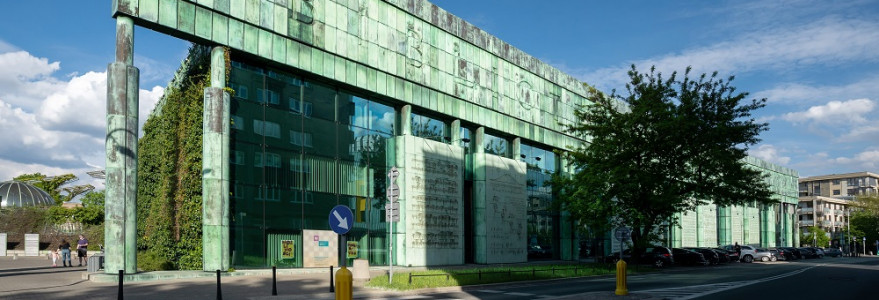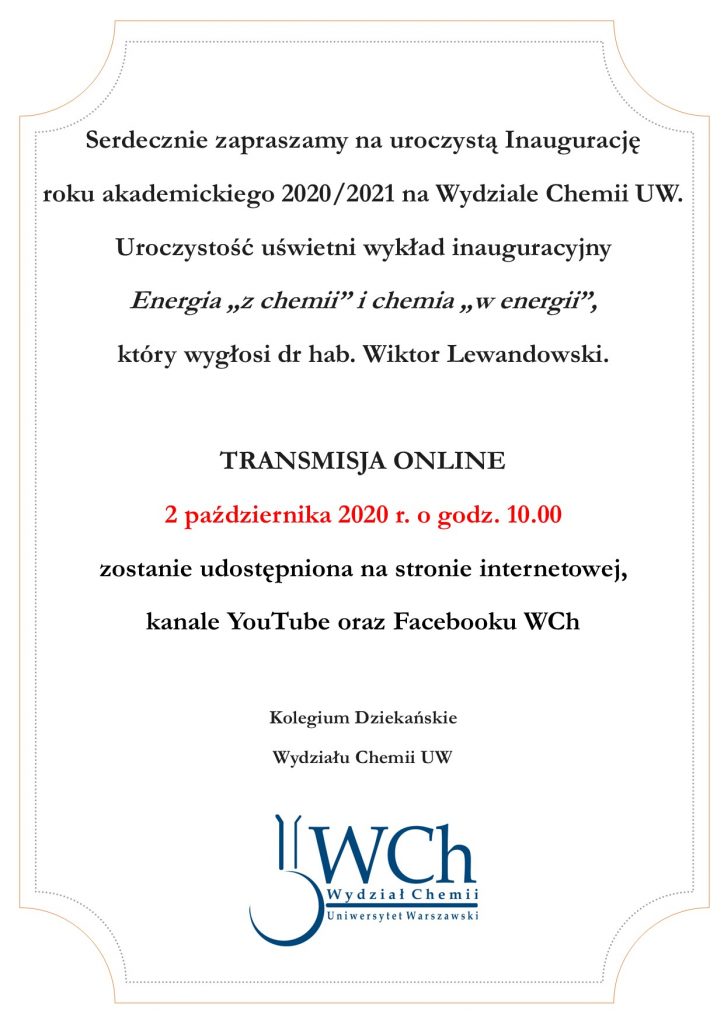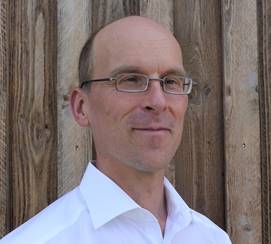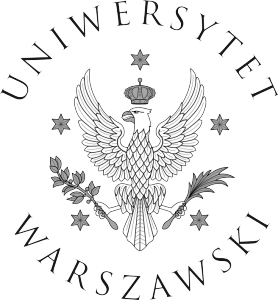24. Festiwal Nauki na Wydziale Chemii UW [RELACJA]
04 października 2020W dniach 18-27.09.2020 odbył się 24. Festiwal Nauki. Mimo pandemii COVID pracownicy oraz doktoranci Wydziału Chemii postarali się o zorganizowanie spotkań, w tych trudnych warunkach. Część spotkań – wykłady – odbyły się online, zaś spotkania w laboratoriach, czy warsztaty w salach przy zachowaniu reżimu sanitarnego. Niestety, ze względu na bezpieczeństwo nasze i uczestników, władze wydziału podjęły decyzję o zawieszeniu tegorocznej edycji spotkań „Przygody z chemią”.
Zaproponowane w tym roku spotkania to:
Wykłady/pokazy:
- Sekretne życie spinów jądrowych – dr hab. Piotr Garbacz
- Mikroplastik morski – spojrzenie z bliska – dr Agnieszka Dąbrowska
- Chemia 2D – dr Marcin Strawski
- Jak powstają, czy są groźne i jak możemy przetwarzać odpady promieniotwórcze – dr hab. Maciej Chotkowski, mgr Damian Połomski
Debaty/warsztaty/zajęcia laboratoryjne:
- O mikroplastiku morskim i nie tylko – dyskusja otwarta – dr Agnieszka Dąbrowska
- Eksperymenty z wodą – mgr Maciej Bagiński, mgr Ewelina Tomczyk, mgr Agnieszka Jędrych
- Warsztaty fizyko-chemiczne z Manufakturą Naukowców – dr Magdalena Osial, dr Małgorzata Pająk, dr Magdalena Warczak, mgr Dominika Załubiniak
- Otrzymywanie olejku eterycznego z goździków w procesie destylacji z parą wodną – dr hab. Anna Piątek, mgr Barbara Zakrzewska, mgr Marta Zaleskaya, mgr Damian Jagleniec, mgr Maciej Zakrzewski
Wszystkie spotkania cieszyły się dużym zainteresowaniem ze strony uczestników. W sumie podczas całego tygodnia w zajęciach brało udział ok. 450 uczestników, choć niektórzy jedynie zdalnie.
Chciałabym serdecznie podziękować tegorocznym organizatorom spotkań Festiwalu Nauki. Podjęli się oni trudnego wyzwania dostosowania do warunków pandemii i pokazali, że pasja przezwycięża najróżniejsze problemy. Mam nadzieję, że przyszłoroczna edycja Festiwalu Nauki odbędzie się już bez żadnych obostrzeń i serdecznie zapraszam wszystkich, którzy chcieliby dołączyć do nas w przyszłym roku.
dr hab. Anna Piątek
Koordynator Festiwalu Nauki na Wydziale Chemii
Działalność BUW od 15 października
02 października 2020
15 października Biblioteka Uniwersytecka w Warszawie zostanie ponownie otwarta w pełnym zakresie. Korzystanie z BUW możliwe będzie przy zachowaniu zaleceń Głównego Inspektoratu Sanitarnego oraz zgodnie z zarządzeniem dotyczącym funkcjonowania uczelni w okresie stanu epidemii.
Czytelnicy korzystając z Biblioteki powinni nosić maseczki ochronne lub przyłbice, dezynfekować ręce przed wejściem do budynku oraz przy stanowiskach obsługi czytelnika, a także zachowywać odstęp co najmniej 1,5 m od innych osób. Jednocześnie w Bibliotece przebywać może łącznie 300 użytkowników. Wejście do BUW będzie możliwe jedynie z ważną kartą biblioteczną. Stanowisko zapisów będzie czynne w nowym miejscu – w uliczce, po lewej stronie od wejścia, od ul. Lipowej.
Na terenie Biblioteki obowiązują wytyczne GIS oraz przepisami zarządzenia wydanego przez prof. Alojzego Z. Nowaka, rektora UW, dotyczącego funkcjonowania uczelni w okresie stanu epidemii. Osoby korzystające z BUW zobowiązane są do przestrzegania regulaminu udostępniania zbiorów Biblioteki, obowiązujących w niej przepisów porządkowych, a także komunikatów i poleceń pracowników BUW oraz ochrony.
Członkowie społeczności UW będą mogli korzystać m.in. z:
- wypożyczenia i zwrotów w tymczasowej Wypożyczalni,
- rozpatrywania reklamacji,
- rozliczenia obiegówek,
- zamówienia na wypożyczenia międzybiblioteczne,
- realizacji zamówień na skany.
Nadal nie będą realizowane niektóre usługi BUW: szkolenia stacjonarne studentów i innych użytkowników; organizacja konferencji, spotkań zewnętrznych; odwiedziny dla grup powyżej pięciu osób; wynajem sal i pomieszczeń BUW; organizacja imprez kulturalnych, wernisaży, koncertów. Niedostępne pozostaną BUWialnia i i sale pracy grupowej.
Do 15 października BUW działa w ograniczonym zakresie. Możliwe są tylko wypożyczenia i zwroty książek oraz zamówienia na skany. Od 12 do 14 października Biblioteka będzie nieczynna.
Godziny otwarcia:
- Informatorium: poniedziałek – piątek, godz. 9-21;
- Zapisy (sala w uliczce, po lewej stronie od wejścia, od ul. Lipowej): poniedziałek – piątek, godz. 9-20;
- Wypożyczalnia i selfczeki (poziom 1): poniedziałek – piątek, godz. 9-21;
- Trezor – 24/7;
- Czytelnia (poziom 2. w nowej lokalizacji, w dotychczasowej Czytelni Zbiorów XIX Wieku): poniedziałek – piątek, godz. 9-21;
- Gabinety Zbiorów Specjalnych: termin wizyty w danym gabinecie należy umówić telefonicznie lub mailowo.
Informacje szczegółowe dotyczące godzin otwarcia oraz zasad korzystania z Biblioteki znajdują się na stronie BUW: https://www.buw.uw.edu.pl/.
Źródło: www.uw.edu.pl
Oferta pracy dla Specjalisty ds. Zamówień Publicznych
Wydział Chemii Uniwersytetu Warszawskiego poszukuje kandydata / kandydatki na stanowisko Specjalista ds. Zamówień Publicznych. Termin przesyłania dokumentów upływa 16 października 2020 roku. Więcej informacji >> pdf
Inauguracja roku akademickiego 2020/2021 na Wydziale Chemii UW [RELACJA ONLINE]
Nowy rok akademicki rozpoczęty
01 października 2020Inauguracja roku akademickiego 2020/2021 na Wydziale Chemii UW

Prof. Julian Henn – a new visiting professor at our Department
Since the 1st of Oct. 2020, a visiting professor Julian Henn is joining our Department. Julian will be staying in prof. Krzysztof Woźniak’s group. This visiting professorship is possible thanks to funds offered within the Integrated Actions Program for the Development of the University of Warsaw, co-financed by the European Social Fund under the OP KED, path 3.5. Prof. Henn works in the field of systematic errors in least squares applications and quality indicators for crystallographic diffraction data. Some of us may remember his excellent lecture during European Charge Density Meeting, organised at CENT in 2016 and his lectures and classes during his previous stay at our department (in 2016).
Julian got his PhD in the Quantum Chemistry group of Professor Bernd Engels, Bayerische Julius-Maximilians University Würzburg, defending his thesis (2004): „The electron density: a bridge between exact quantum mechanics and fuzzy chemical concepts” (Summa cum laude), online publication at:
http://opus.bibliothek.uni-wuerzburg.de/opus/volltexte/2004/900/
Earlier he studied theoretical physics and philosophy (philosophy of science in particular) as subsidiary subject.
Julian has published ca. 40 papers so far in the leading chemical and crystallographic journals such as, for example: JACS(3), Angewandte Chem.(7), Chem. Eur. J., J. Phys. Chem. (6), J. Comp. Chem., Phys. Rev. Lett., Chem. Commun. (3), Acta Cryst. A (9), Inorg. Chem., Crystallographic Reviews, Acta Cryst. B, etc.
He worked as Postdoctoral Research Fellow in the group of Professor Dietmar Stalke, Institute of Inorganic Chemistry, Georg-August University Göttingen, Germany (years 2006-2010). In years 2005-2006, Julian worked as Feodor Lynen Research Fellow (12 months) of the German Alexander von Humboldt Foundation at the Theoretical Quantum Optics of Professor U. Leonhardt (University of St Andrews, Scotland, UK) and just after PhD he joined a Research Fellow Professor Bernd Engels at the Institute of Organic Chemistry, Bayerische Julius-Maximilians University Würzburg.
In 2016 Prof. Henn also joined my group (Prof. Krzysztof Wozniak) for 3 months at our Department (Department of Chemistry, University of Warsaw).
Now since the 1st/10/2020 Julian Henn is joining us again for 5 months as visiting professor.

Julian will present two series of lectures (of course all in English):
Fit Data Evaluation (with applications in crystallography) – ZIP
and Tutorial on Mathematics (bachelor level) – ZIP
This teaching is offered within the Integrated Actions Program for the Development of the University of Warsaw, co-financed by the European Social Fund under the OP KED, path 3.5. (ZIP).
The first series of lectures, Fit Data Evaluation (with applications in crystallography), is focused on fitting a model to data. This is performed in all natural sciences; it is an indispensable tool for model building, model evaluation and hypotheses testing. With modern linear algebra and statistics packages as implemented in R, Mathematica, or MatLab, it is often not the problem to obtain a fit, however, the interpretation of the fit becomes more important. In this course, the standard interpretation tools are reviewed, their abilities and limitations are discussed and new concepts are introduced (for a review see Crystallography Reviews, 2019, 25(2): 83-156) to overcome the limitations. It is pointed out, which tacitly assumed (and often not met) conditions are necessary for meaningful applications of these descriptors and how to test these assumptions as well as how to overcome limitations. Although the example applications are mainly from crystallographic data sets, most concepts can be applied immediately to other research areas, too. Therefore, this course is of interest for all students, PhD students and even scientists, who use least-squares fitting (or maximum entropy fitting) on datasets with small and large observed entities.
The course is available to graduates and post-graduates (and scientists) of all studies dealing with experiment and analysis of measured data. And this course is also for all those who work in the field of broadly understood crystallography.
Here are the topics which will be presented:
Why fit quality evaluation? Chances and limits of fit quality evaluation. Data descriptors and data quality descriptors. Conscious and subconscious choices. Error affine and error aversive atmosphere.
Least Squares refinement. History, method, maths. Linear least squares and non-linear, iterative least squares, maximum likelihood estimators
Statistical Descriptors. Mean, Variance, linear correlation, rank correlation, Goodness of Fit (GoF), Chi Square and more
Standard Metrics for crystallographic data and new complements:
GoF and agreement factors,
the significance of the GoF, predicted agreement factors, correlation coefficients
New Approaches.
alternative Goodness of Fit, Meta residual values, Bayesian Conditional probability plots (BayCoN) and associated Chi-Square values, Fractal Dimension plots, etc
Applications:
Case studies, applications to 127 data sets, individual published data sets
Hands-on tutorial
The second course, Tutorial on Mathematics, is a bachelor level course in Mathematics.
Mathematics is of great importance in all natural sciences. It is therefore a good idea to continuously develop and train mathematical skills and a profound understanding of mathematical concepts. The course aims at a deepening of the known mathematical concepts and to improve the skills in their application.
Each lesson comprises background knowledge, definitions, examples and exercises, such that the learned lessons are implemented immediately and questions can be answered in place. 60 Minutes are given to lecturing, 30 minutes to exercises. The course is open for all students chemistry, medical chemistry and nanoscience after their first year of studies. This could be an interesting alternative to the courses in Polish.
The main topics covered in the course:
Introduction, Basic notation and concepts
Polynomials
Vectors
Matrices
System of linear equations
Vector spaces
Eigenvalues
Differential equations
Complex numbers
Continuity
Series and limits
Differentiability
Power series
Dear Julian,
Welcome to Warsaw,
Welcome to our University.
Prof. Krzysztof Woźniak

